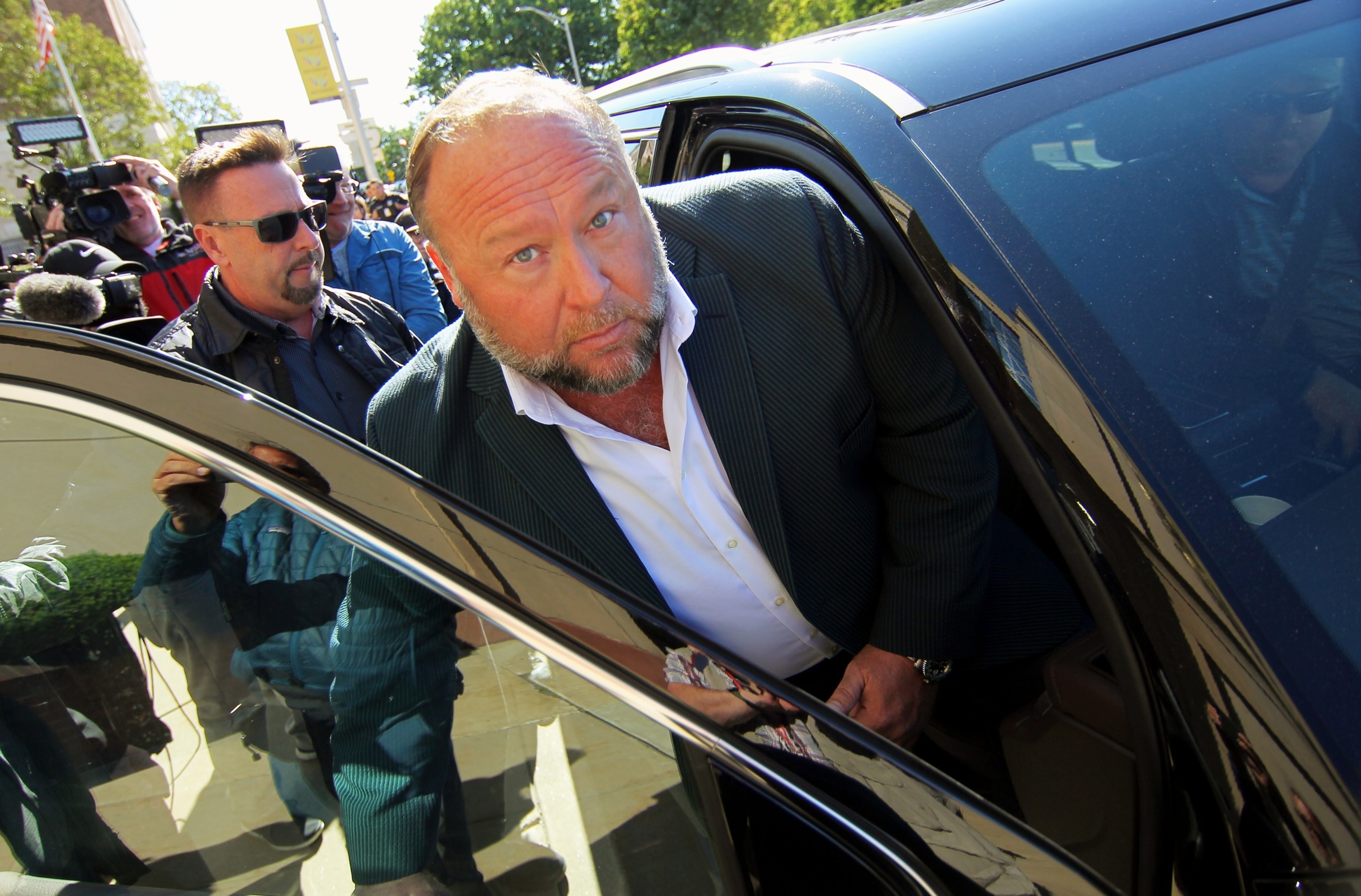The Supreme Court on Tuesday rejected the appeal of conservative commentator and conspiracy theorist Alex Jones, who was ordered to pay $1.4 billion in damages to the families of victims of the 2012 Sandy Hook Elementary School shooting.
The court did not explain the refusal.
In 2022, a Connecticut jury awarded $965 million in damages to 15 plaintiffs defamed by Jones when the Infowars host called the 2012 mass shooting, in which 20 young children and six adults died, a hoax. A judge later added an additional $473 million in punitive damages.
Jones’ lawyers argued that the sum is an “amount that can never be paid.”
“The result is a financial death penalty imposed by decree on an accused media outlet whose broadcasts reach millions,” they said. request to the court read.

Infowars host Alex Jones leaves after speaking to media outside the Connecticut Superior Court during the ongoing Sandy Hook damages and defamation trial in Waterbury, Connecticut, on September 23, 2022.
Connecticut Post/via Getty Images
The Supreme Court also rejected several other hot-button cases in its list of orders released Tuesday.
The justices declined to hear an appeal from a group of Colorado parents seeking to sue their public school district over a policy that allegedly allows children to make gender transitions and receive support from school staff, without any notification to parents.
In a statement, Justice Samuel Alito agreed with the decision and said the case was an imperfect “vehicle” for examining the central legal question; but urged the court to look for other opportunities to address the “troubling (and tragic) allegations in the case.”
In another case, the court rejected an appeal from a group of unnamed minors and their families who had sued the Grindr app for marketing to children, recommending them to nearby adults for sex, and allegedly facilitating trafficking.
Additionally, he declined to take up a widely watched California case challenging Food and Drug Administration regulations governing the use of stem cells to promote healing through new forms of treatment, as well as a conservative group’s challenge to the Department of Homeland Security’s authority to issue temporary work permits to immigrants who entered the country illegally without the express consent of Congress.






